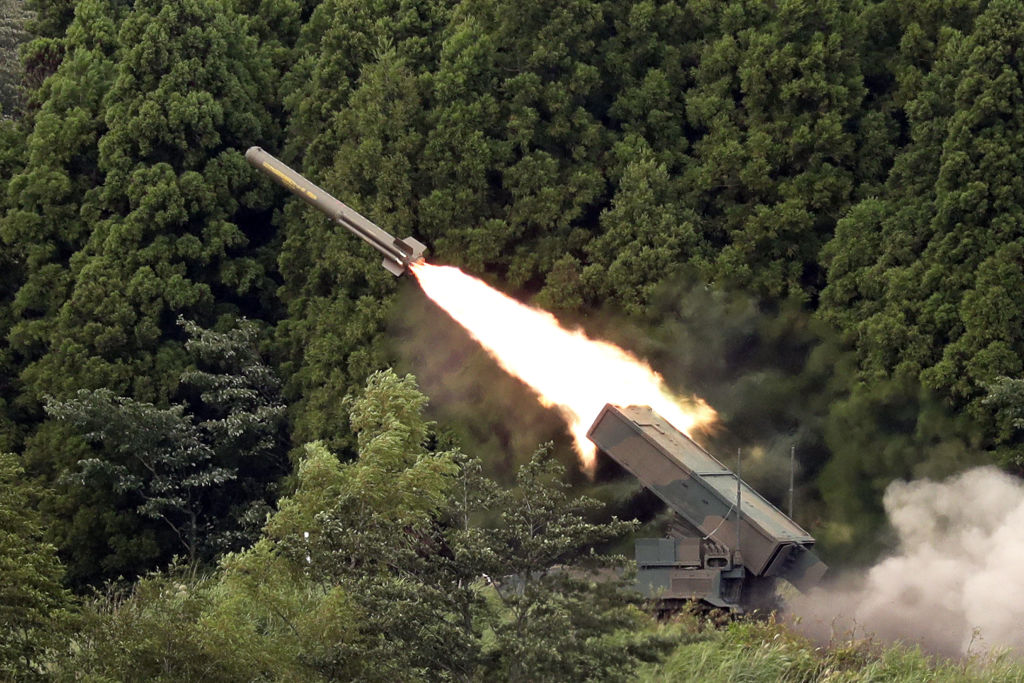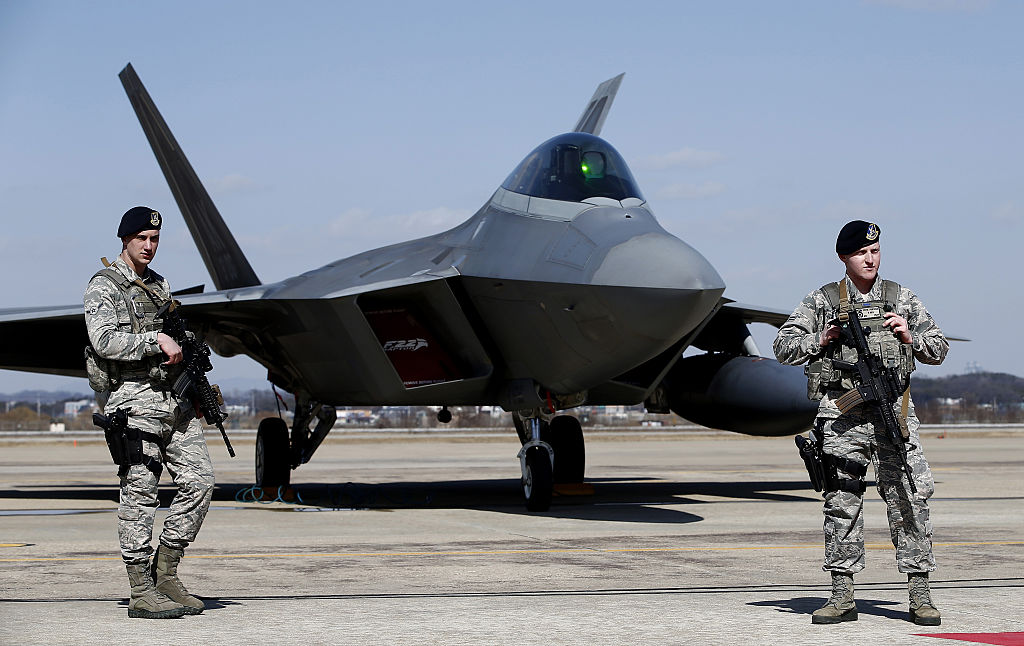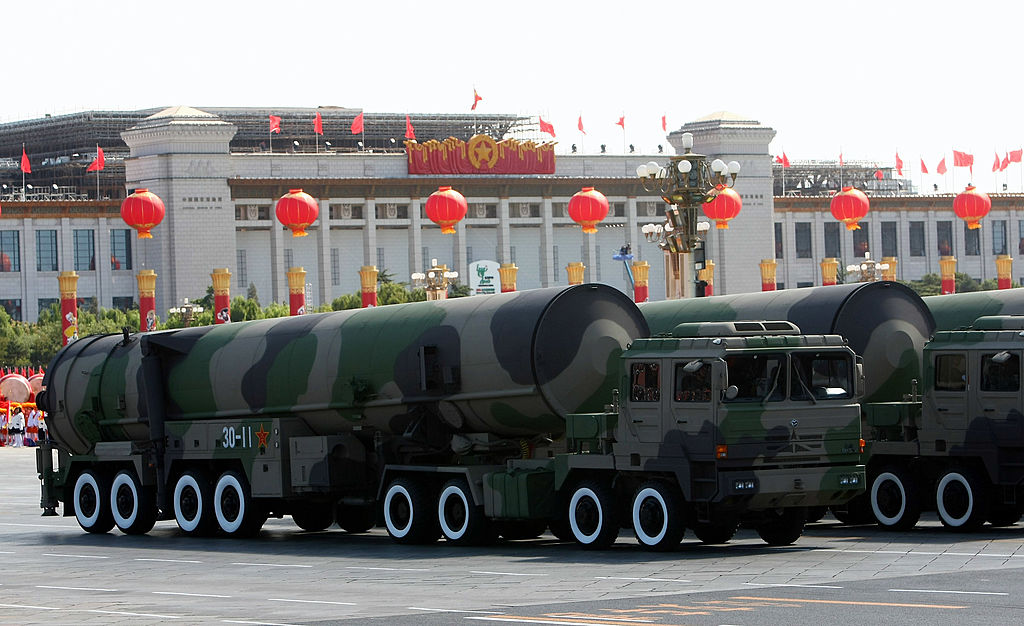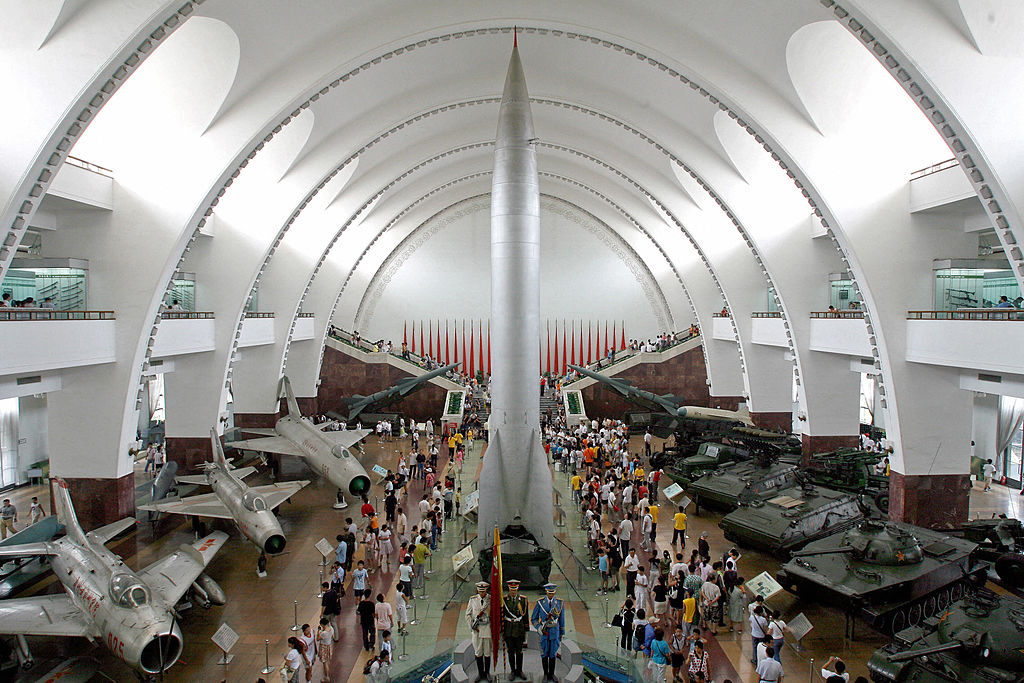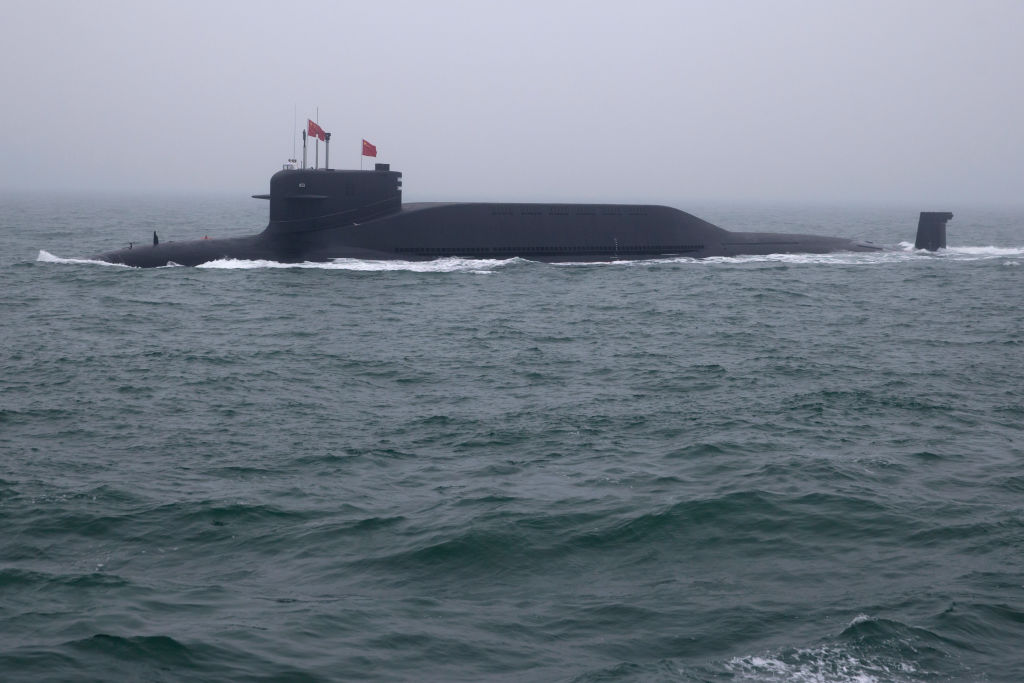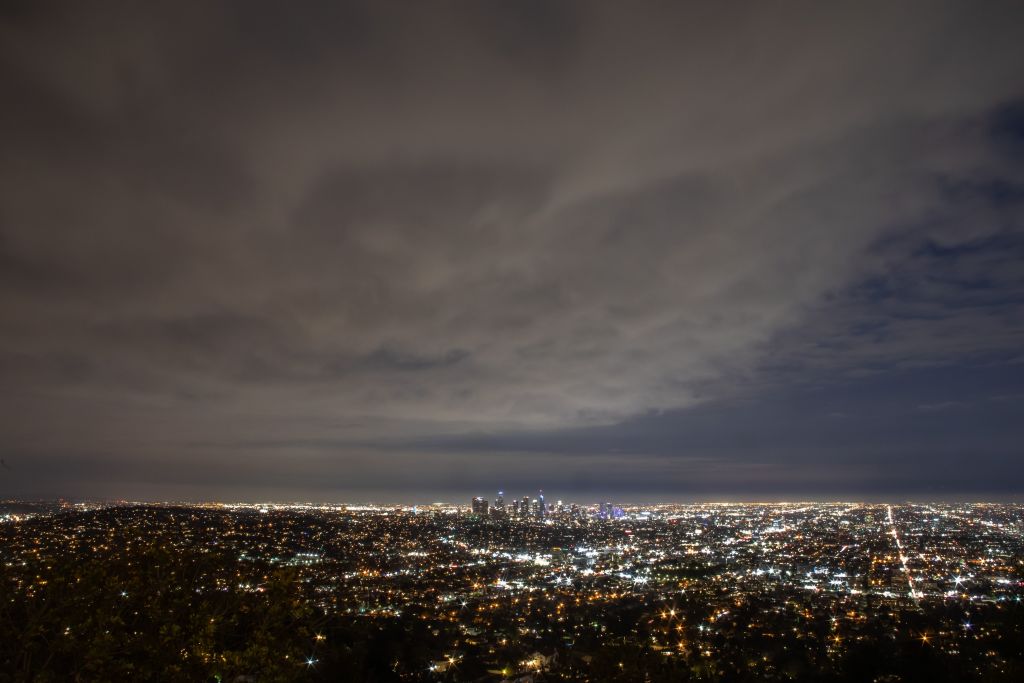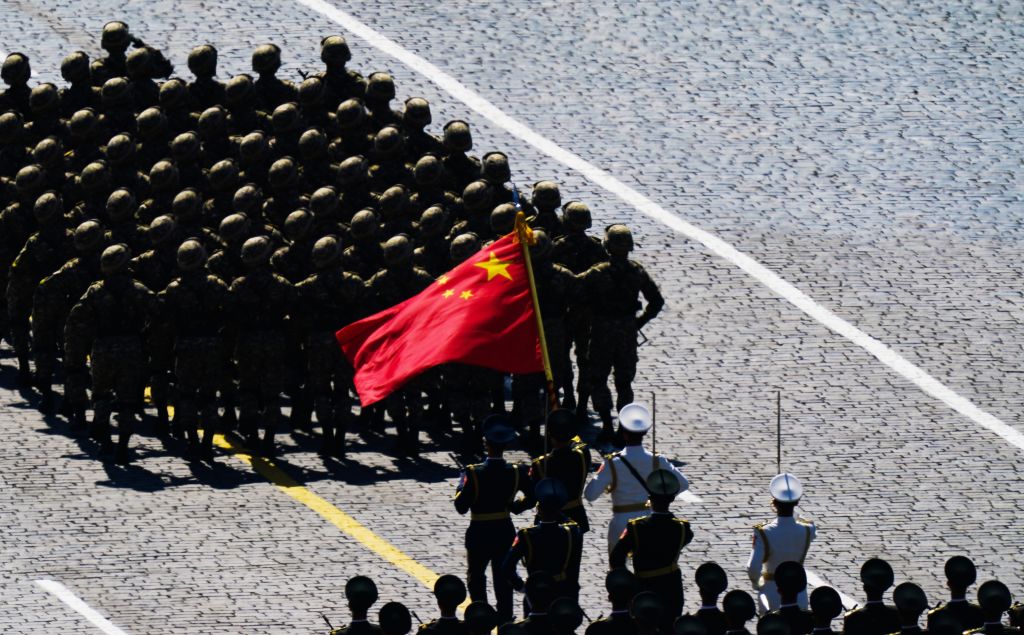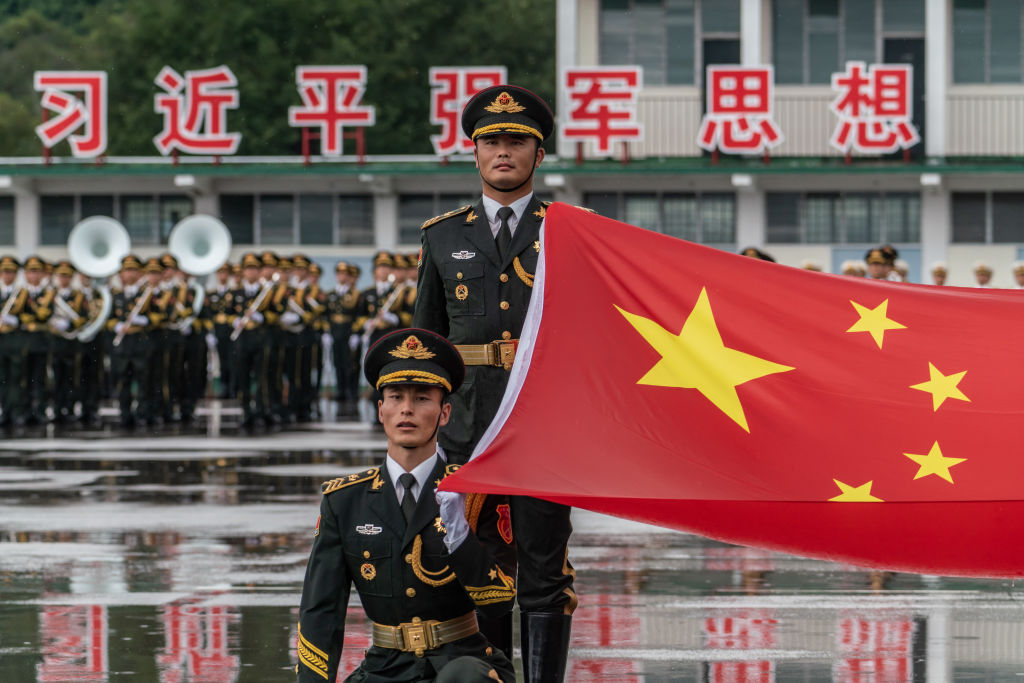It wouldn’t be a new cold war without an accelerating nuclear arms race.
The Pentagon reported last week that China is planning to double its nuclear arsenal by 2030 https://trib.al/LPZDMKJ
The Pentagon reported last week that China is planning to double its nuclear arsenal by 2030 https://trib.al/LPZDMKJ
China is rapidly expanding its previously modest deterrent with:
 Better intercontinental ballistic missiles
Better intercontinental ballistic missiles
 More robust weapons that would survive attack
More robust weapons that would survive attack
 Launch-on-warning capability, allowing China to retaliate before enemy warheads hit http://trib.al/LPZDMKJ
Launch-on-warning capability, allowing China to retaliate before enemy warheads hit http://trib.al/LPZDMKJ
 Better intercontinental ballistic missiles
Better intercontinental ballistic missiles More robust weapons that would survive attack
More robust weapons that would survive attack Launch-on-warning capability, allowing China to retaliate before enemy warheads hit http://trib.al/LPZDMKJ
Launch-on-warning capability, allowing China to retaliate before enemy warheads hit http://trib.al/LPZDMKJ
It’s not shocking that a country involved in a deepening rivalry with the U.S. — which has about 1,400 deployed nuclear warheads — would improve its nuclear capabilities as its power grows.
The question is how much, and in what ways, this matters http://trib.al/LPZDMKJ
The question is how much, and in what ways, this matters http://trib.al/LPZDMKJ
One interpretation is that it doesn’t.
Even with 400-plus warheads, China will be far short of nuclear parity with the U.S. and Beijing has retained its longstanding, if ambiguous, “no first use” policy http://trib.al/LPZDMKJ
Even with 400-plus warheads, China will be far short of nuclear parity with the U.S. and Beijing has retained its longstanding, if ambiguous, “no first use” policy http://trib.al/LPZDMKJ
Indeed, scholars have argued that China remains hesitant to employ nuclear weapons in most conflicts, for fear that any nuclear war could spin out of control.
Yet this interpretation raises the question of why China would engage in a pointless buildup http://trib.al/LPZDMKJ
Yet this interpretation raises the question of why China would engage in a pointless buildup http://trib.al/LPZDMKJ
The buildup could be strategically meaningful, but in a good way.
It can be dangerous when one actor fears that its nuclear forces are vulnerable. In a crisis, they might feel pressure to fire off warheads before they are wiped out by an enemy strike http://trib.al/LPZDMKJ
It can be dangerous when one actor fears that its nuclear forces are vulnerable. In a crisis, they might feel pressure to fire off warheads before they are wiped out by an enemy strike http://trib.al/LPZDMKJ
This hypothesis is plausible, given concerns that U.S. conventional strikes on Chinese command-and-control assets could make Beijing fear losing contact with its nuclear forces.
The trouble is that nuclear stability can, paradoxically, be destabilizing http://trib.al/LPZDMKJ
The trouble is that nuclear stability can, paradoxically, be destabilizing http://trib.al/LPZDMKJ
A third interpretation is that the Chinese buildup will make life harder for the U.S.
As the conventional military balance in the Taiwan Strait deteriorates, the U.S. might feel compelled to threaten nuclear escalation to deter or defeat a Chinese attack http://trib.al/LPZDMKJ
As the conventional military balance in the Taiwan Strait deteriorates, the U.S. might feel compelled to threaten nuclear escalation to deter or defeat a Chinese attack http://trib.al/LPZDMKJ
That option is only credible if the U.S. can destroy enough of China’s nuclear arsenal to prevent a retaliation.
As one Chinese military official remarked during a crisis over Taiwan in 1996, America would not save Taipei if it meant losing Los Angeles http://trib.al/LPZDMKJ
As one Chinese military official remarked during a crisis over Taiwan in 1996, America would not save Taipei if it meant losing Los Angeles http://trib.al/LPZDMKJ
This is where China’s buildup matters.
If nuclear expansion removes the possibility of an effective U.S. first strike, then America might not go nuclear in the first place.
That'd make Beijing more confident in its ability to win a conventional war http://trib.al/LPZDMKJ
If nuclear expansion removes the possibility of an effective U.S. first strike, then America might not go nuclear in the first place.
That'd make Beijing more confident in its ability to win a conventional war http://trib.al/LPZDMKJ
A revisionist state is getting closer to the point at which it might be able to expand its influence by force.
That has, historically, been a formula for trouble http://trib.al/LPZDMKJ
That has, historically, been a formula for trouble http://trib.al/LPZDMKJ

 Read on Twitter
Read on Twitter